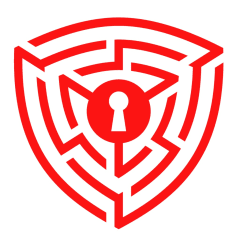Interior designers and interior decorators are two distinct professionals with different roles, education, and responsibilities. While both focus on enhancing interior spaces, there are significant differences between the two:
Interior Designer:
- Education and Qualifications: Interior designers typically have formal education and training in interior design from accredited schools or programs. They may hold a degree in interior design or a related field and are often required to pass a licensing or certification exam, depending on the state regulations.
- Scope of Work: Interior designers have a more comprehensive scope of work, which includes not only selecting decorative elements but also making structural changes and modifications to interior spaces. They are trained to understand the functional and spatial requirements of a space, create floor plans, consider building codes and regulations, and handle project management aspects.
- Specializations: Interior designers may specialize in specific areas such as residential design, commercial design, healthcare design, hospitality design, or sustainable design. Their expertise allows them to design spaces that not only look visually appealing but also meet safety, accessibility, and building code requirements.
- Services: Interior designers work with clients to develop design concepts, create space plans, select finishes, coordinate with contractors, and manage the implementation of the design.
Interior Decorator:
- Education and Qualifications: Interior decorators may not necessarily have formal education in interior design, although some may have completed design-related courses or training. Unlike interior designers, decorators are not required to pass licensing exams.
- Scope of Work: Interior decorators primarily focus on the aesthetics and decorative aspects of interior spaces. They work with existing structures and do not engage in structural changes or architectural modifications. Decorators specialize in choosing and arranging furniture, textiles, accessories, and color schemes to create visually pleasing and cohesive spaces.
- Services: Interior decorators offer services such as selecting furnishings, fabrics, wall coverings, paint colors, and decorative items to enhance the ambiance and style of a room. They work closely with clients to understand their preferences and design preferences to create personalized and stylish interiors.
In summary, while both interior designers and interior decorators contribute to creating beautiful and functional spaces, interior designers have a broader scope of work that includes spatial planning and design, while interior decorators focus specifically on the decorative elements of a space.
Related Careers

Incident Responder
An incident responder is a cyber security professional responsible for identifying, investigating, and mitigating security incidents within an organization.

Cryptanalyst
A cryptanalyst is a specialist in the field of cryptography who focuses on analyzing cryptographic systems and breaking codes to decipher encrypted information.

CISO
A Chief Information Security Officer (CISO) is a senior executive responsible for managing and overseeing an organization's information security program.

Security Software Developer
A security software developer is responsible for designing and developing software applications with a strong focus on security.

Cryptographer
A cryptographer specializes in the field of cryptography, which involves the study and practice of secure communication and data protection.

Security Architect
A security architect is a cybersecurity professional responsible for designing and implementing secure systems, networks, and applications to protect an organization's digital assets from cyber threats and attacks.

Penetration Tester
A penetration tester evaluates the security of computer systems, networks, and applications by simulating real-world attacks.

Information Security Director
An information security director is responsible for leading and overseeing the information security function within an organization.

Digital Forensics Analyst
Digital forensics analysts investigate and analyze digital evidence to uncover information related to cybercrime, data breaches, or other digital incidents.

Red Teamer
A red teamer specializes in conducting adversarial simulations and assessments of an organization's security measures, with the goal of identifying vulnerabilities and weaknesses.

Blue Teamer
Blue teamers are cybersecurity professionals who specialize in defensive security measures and strategies.

SOC Manager
A Security Operations Center (SOC) manager is responsible for overseeing the day-to-day operations and strategic direction of a SOC.

Security Engineer
A security engineer is responsible for safeguarding an organization's information technology infrastructure and data from potential threats, vulnerabilities, and cyberattacks.

Ethical Hacker
An ethical hacker is a cybersecurity professional who is hired by an organization to identify and fix vulnerabilities in their computer systems, networks, and applications.

Information Security Analyst
An information security analyst is responsible for safeguarding an organization's computer systems and networks against cyber threats and unauthorized access.

Cybercrime Investigator
A cybercrime investigator is responsible for investigating and combating cybercrimes.

Information Security Manager
An information security manager is responsible for overseeing and managing the information security program within an organization.

IT Security Consultant
An IT security consultant provides expert advice and guidance on information technology security matters to organizations.

